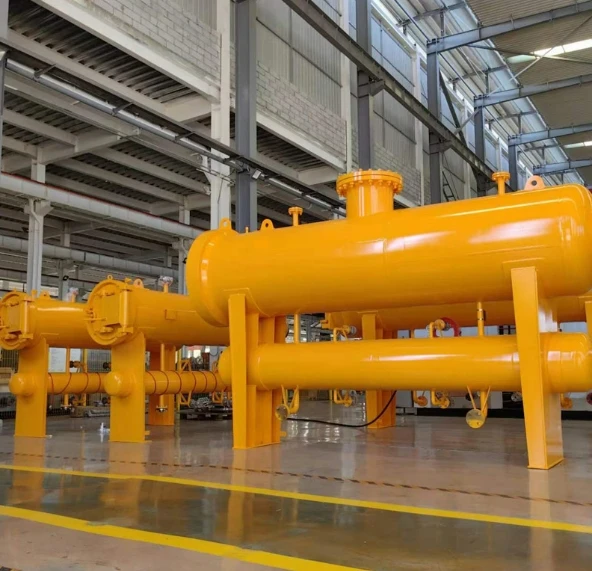
Dec . 15, 2024 12:07
Back to list
filter separator
Understanding Filter Separators Key Components and Their Significance in Industry
In various industrial processes, the need for separation and purification of materials is critical. Among the devices designed to achieve this, filter separators play an essential role. Filter separators are advanced equipment utilized primarily in the oil, gas, and petrochemical industries. Their main function is to separate solid particles and liquids from gases or fluids, ensuring that only the desired components are sent for further processing or storage.
What is a Filter Separator?
A filter separator combines two essential functions filtration and separation. The filtration stage removes solid particulates, while the separation component distinguishes different fluid phases, such as water and oil. This dual functionality allows filter separators to streamline processes, reduce equipment wear, and enhance product quality.
Components of Filter Separators
Filter separators typically consist of several key components
1. Inlet Section This is where the mixed-phase fluid enters the equipment. The design of this section is critical as it can influence the efficiency of the separation process.
2. Filtration Unit This part contains filter elements designed to capture solid particles. The materials used for these filters must be robust enough to withstand high pressures and corrosive substances.
3. Separated Chamber After the filtration process, the mixed fluids enter the separated chamber, where the separation occurs. This chamber utilizes gravitational and centrifugal forces to segregate the different phases based on density.
4. Outlet Sections At this stage, the separated fluids exit the filter separator. Typically, one outlet is for the undesirable phase (like water or sediment) while the other is for the desired phase (like oil or gas).
The Separation Process
The operation of filter separators relies on two main principles gravity and filtration. As the mixed fluid enters the separator, the heavier particles are driven to the bottom due to gravity, forming a layer of sludge or sediment. Simultaneously, the filtration element traps finer particles that might not settle effectively.
For emulsified liquids, where oil and water combine into a single phase, the process becomes more complex. In such cases, the separator may rely on enhanced methods like coalescing media, which help to gather and separate the water droplets from the oil.
filter separator

Advantages of Using Filter Separators
The implementation of filter separators in industrial applications offers multiple advantages
- Increased Efficiency By effectively removing contaminants, filter separators can enhance process efficiency and minimize downtime caused by equipment malfunctions or impurities.
- Cost-Effective Operations By preventing the carryover of unwanted fluids into processing equipment, filter separators help reduce maintenance and operational costs.
- Product Quality The high-quality separation achieved by these devices leads to better product quality, which is crucial in industries where purity is paramount.
- Environmental Protection In industries dealing with hydrocarbons, the effective separation of water and oil prevents environmental contamination, helping companies comply with strict regulations.
Applications of Filter Separators
Filter separators find versatile applications across numerous sectors, including
- Oil and Gas Industry Used extensively in upstream production facilities to separate crude oil and water, enhancing the quality of the extracted hydrocarbons.
- Petrochemical Processing Essential in refining processes where contamination from solids must be minimized to produce high-purity chemicals.
- Food and Beverage Industry Employed for separating solids from liquids in various production processes, ensuring clean output.
Conclusion
In conclusion, filter separators are vital components in modern industrial operations, particularly in the oil and gas sector. Their ability to combine filtration and separation processes not only promotes efficiency and cost-effectiveness but also safeguards product quality and environmental standards. As industries continue to innovate and develop more complex processes, the relevance and technological advancement of filter separators will undoubtedly grow, underscoring their indispensable role in sustainable industrial practices.
Latest news
-
Safety Valve Spring-Loaded Design Overpressure ProtectionNewsJul.25,2025
-
Precision Voltage Regulator AC5 Accuracy Grade PerformanceNewsJul.25,2025
-
Natural Gas Pressure Regulating Skid Industrial Pipeline ApplicationsNewsJul.25,2025
-
Natural Gas Filter Stainless Steel Mesh Element DesignNewsJul.25,2025
-
Gas Pressure Regulator Valve Direct-Acting Spring-Loaded DesignNewsJul.25,2025
-
Decompression Equipment Multi-Stage Heat Exchange System DesignNewsJul.25,2025

